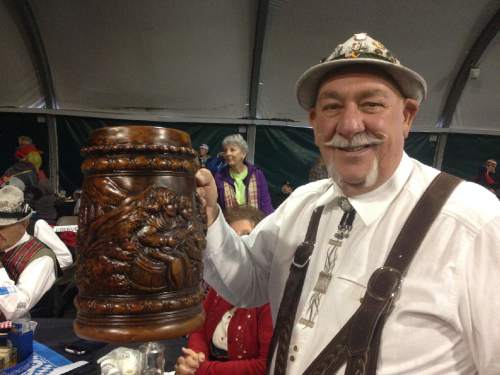This is an archived article that was published on sltrib.com in 2015, and information in the article may be outdated. It is provided only for personal research purposes and may not be reprinted.
The state liquor commission is close to finalizing new rules for special events that — if in place a year ago — could have avoided the controversy leading up to Snowbird resort's annual Oktoberfest celebration.
On Tuesday, Utah's Alcoholic Beverage Control Commission will discuss the proposal that — among other things — gives more weight to local communities and offers groups an appeal process if a permit is denied.
If the seven-member liquor board approves the new rules, there will be a 30-day public comment period before the plan becomes official, said Vickie Ashby, spokeswoman for the Department of Alcoholic Beverage Control (DABC).
Under state law, single-event permits allow beer, wine and spirits to be served at one-time community and civic events. Groups and businesses that have been in existence for at least a year are allowed up to 12 special-event permits per year. A large part of each application is showing how underage drinking and overconsumption will be prevented during the event.
Last May, the commission sparked a frenzy after it told officials from Snowbird that the venue might not receive a single-event permit for its annual Oktoberfest celebration.
At the time, the DABC commission and staff had begun using a stricter interpretation of state law when granting the single-event permits — namely favoring a "civic or community group that promoted a common good" over a for-profit business that already had other state liquor licenses.
The possibility of no beer at the Oktoberfest celebration made national headlines and the negative publicity created heartburn among Utah lawmakers, who expressed their displeasure with the commission's actions. Snowbird ultimately received its permit.
The situation was an example of just how complicated Utah's liquor laws can be as Snowbird holds 19 state liquor licenses for its restaurants and bars. None of those licenses, however, allows for booze in the outdoor area where Oktoberfest is held.
Since then, the DABC has been reviewing the rules and looking at ways to make the process more clear for applicants and staff.
"We redacted the old rule and started over," DABC Compliance Officer Nina McDermott said when the new draft was presented in January.
A mostly finalized draft was presented to the board in May. Among the changes:
• The DABC will consider recommendations from cities when determining whether an event is a "civic or community" enterprise.
• The DABC will review the "totality of circumstances" to determine if special-event permits are being requested as a way to circumvent state law and other liquor license requirements.
• The DABC will consider an applicant's three-year violation history when granting special-event permits.
• If the DABC director denies a special-event permit, the applicant can appeal to the liquor commission.
• Applications must be submitted at least seven days in advance of the event.



